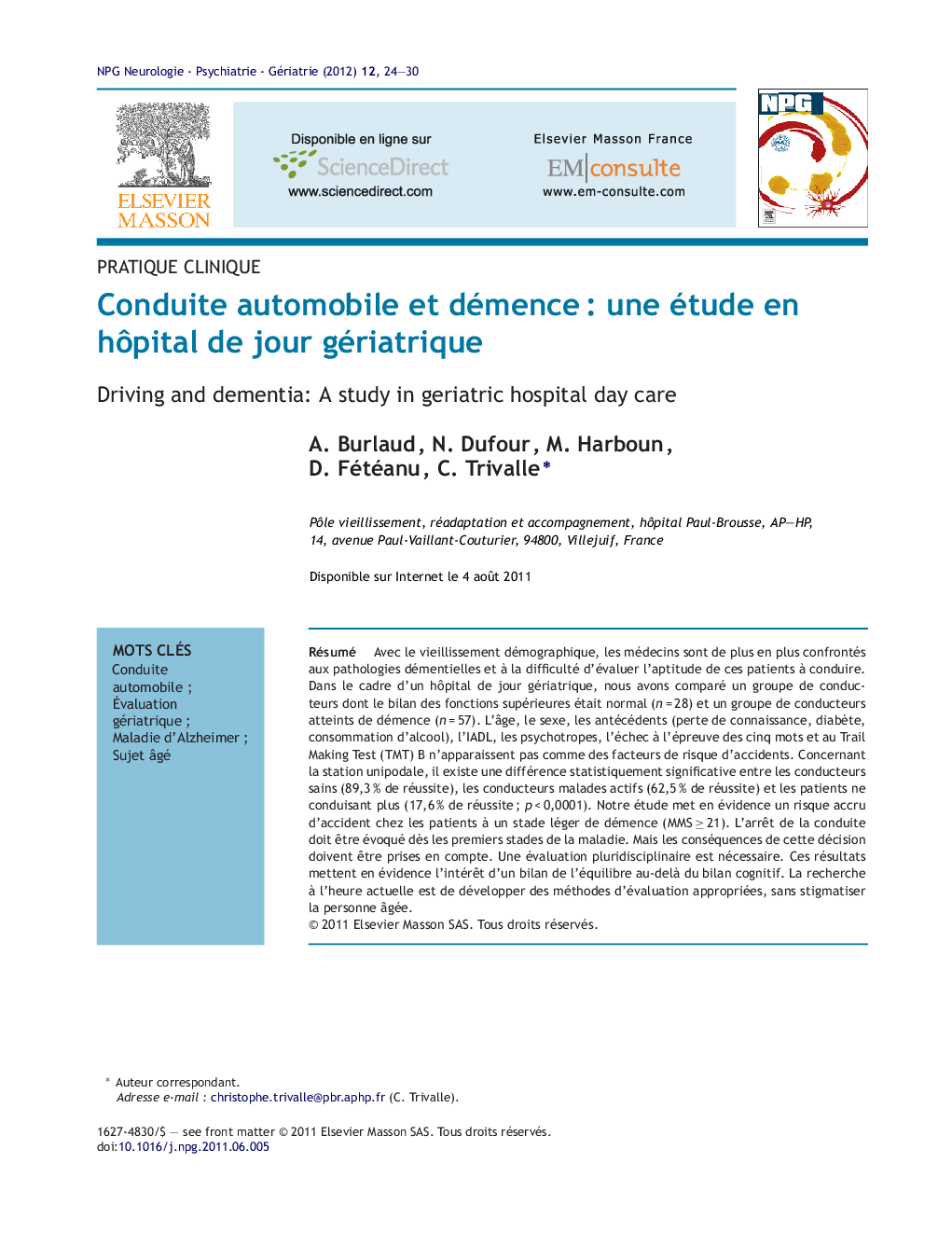| Article ID | Journal | Published Year | Pages | File Type |
|---|---|---|---|---|
| 3326238 | NPG Neurologie - Psychiatrie - Gériatrie | 2012 | 7 Pages |
Abstract
With the aging population, physicians are increasingly faced with dementia and the difficulty of assessing the ability of these patients to drive. In a geriatric day hospital, we compared a group of drivers with normal cognitive functions (n = 28) and a group of drivers with dementia (n = 57). Age, sex, antecedents (consciousness loss, diabetes, alcohol consumption), IADL, psychotropic treatment, test of five words and Trail Making Test (TMT) B do not appear as risk factors for road accidents. For “one-leg balance” there is a statistically significant difference between healthy drivers (89.3% success), demented drivers (62.5% success) and demented patients who have stopped driving (17.6% success, P < 0.0001). Our study highlights an increased risk of road accidents in patients with early dementia (MMS â¥Â 21). The cessation of driving should be envisaged in the early stages of the disease. However, the consequences of that decision must be taken into account. A multidisciplinary assessment is necessary. These results highlight the value of balance evaluation in addition to cognitive assessment. Present research is towards developing appropriate evaluation methods, without stigmatizing the elderly.
Keywords
Related Topics
Health Sciences
Medicine and Dentistry
Geriatrics and Gerontology
Authors
A. Burlaud, N. Dufour, M. Harboun, D. Fétéanu, C. Trivalle,
